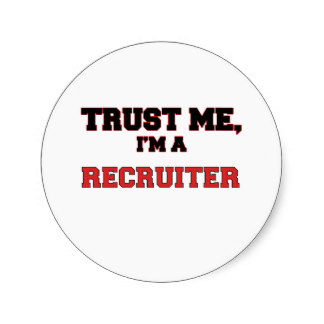
How To Effectively Work With a Recruiter

Accounting and finance professionals are in high demand. If you have an online account with any professional networking site, i.e., LinkedIn, the chances that numerous recruiters have been reaching out to you about open positions you qualify for are extremely high. In today’s job market, this sounds like a good problem to have. However, sometimes, when you receive too much contact from different recruiters, you can lose sight of the value they bring.
Working with a recruiter can bring you much closer to your Career Goals than you may realize, but then again, the opposite can also be true. It all depends on who you choose to work with and how. Before even considering which recruiter is best for you, you should understand a few basics.
Types of Recruiters
There’s more than just one type of recruiter. It’s important to understand the differences because they are not a “one-size-fits-all.”
- Contingency recruiters are probably the most common for positions up to but just under the C level. They typically search for full-time employees and are not compensated unless their client companies actually hire you. The time they spend recruiting, screening, performing initial interviews, and coordinating all communication between you and the client is work completed on the front end without any guarantee of pay. It is only when the client company decides to interview and hire you that the recruiter receives payment for his work. This is either a flat fee or a percentage of your annual salary. Upper level positions usually generate a much larger payout than the alternatives.
- Retained recruiters have some similarities to contingency recruiters in the search functions they offer. However, instead of waiting until you are hired to be paid, they charge the client an upfront fee that must be paid before the search begins. And once the fee is paid, retained recruiters do not have to compete with other recruiting companies on filling their client’s open position. They work closely with the client company to develop an ideal profile of the candidate that would best fill the position and undergo an extensive search process to find the perfect match. Once the recruiter finds an acceptable number of candidates and the best one is chosen, the client pays the remainder of the recruiting fee. Companies tend to use retained recruiters when hiring key executive or management positions as the search process is much more intricate.
- Staffing recruiters are a different ballgame altogether. They typically recruit for temporary or contract positions and have a warehouse of resumes on file. When their clients indicate a need for more workers, the recruiters pull the resumes and start call-backs. If you are ever hired through a staffing agency, you will perform your work at the site of the agency’s client but be an employee of the staffing agency. Your paychecks will be processed on the agency’s payroll, typically on a weekly basis, and the client company will pay the staffing agency each week for the services you provide, at a much higher rate than you are paid. For some temporary positions, specifically those that are temp-to-hire, this setup is short-lived if your work meets the client company’s requirements. Within a specified number of days, similar to a probation period, you will be hired directly by the client company and will transfer to their payroll.
- Last but not least, you may be approached by a consulting recruiter. They are usually industry specific, i.e., IT, finance, marketing, etc., and distribute work on a project basis. Similar to staffing agencies, you would be an employee of the consulting agency and receive contract work from their clients. The client companies pay the agency, and the agency pays you.
Once you have a good idea of which type of recruiter best fits your career path and interests, you should consider a few more factors.
Industry/Discipline/Niche Specific
Some recruiters are more specialized than others, but it is essential that you choose to work with those who have experience in your niche and/or industry. If you’ve worked for retail companies for the last decade and desire to continue that pattern, you should work with recruiters who have experience recruiting within the retail industry. They are more likely to have access to the types of companies you would enjoy working for. They will also be able to provide you with recommendations and tips based on their prior experiences placing candidates within that industry.
Geographical
Recruiters can work all over the world. And because your first point of contact with them is usually over the phone or online, you should make it a point to confirm that they service your local geographical area or area of interest. Most recruit by location. It would be a nuisance to begin working with one while looking for a Tampa jobs only to discover he only has access to Orlando jobs.
Personality Fit
Working with a recruiter is a lot like working with a doctor. When choosing a doctor, you assume that they all have good medical skills. So what you are really looking for is someone who fits your personality. Use this same approach when choosing a recruiter.
Do you want a recruiter who listens to you, asks questions, and is interested in your career goals? How would you feel if he sent your resume to a company without your knowledge? Yes, some do this. The best way to get to know potential recruiters before committing to them is by asking questions. If confidentiality is important to you, confirm that they have a history of working confidentially. Never work with a pushy recruiter or one with whom you do not feel comfortable.
Understand a Recruiter’s Purpose
Lastly, understand what a recruiter is and what he isn’t. A recruiter’s role is ancillary to your primary job search efforts. If you are currently unemployed and your livelihood depends on you being employed within the next two weeks, you should not sit back and wait on the recruiter to resolve your situation. You should always continue searching and applying for jobs on your own. This will help ensure you maintain a healthy relationship with your recruiter and keep you actively involved in building your ideal career.
Ready to discuss the recruiting or job search process? Drop us a note!
"*" indicates required fields
